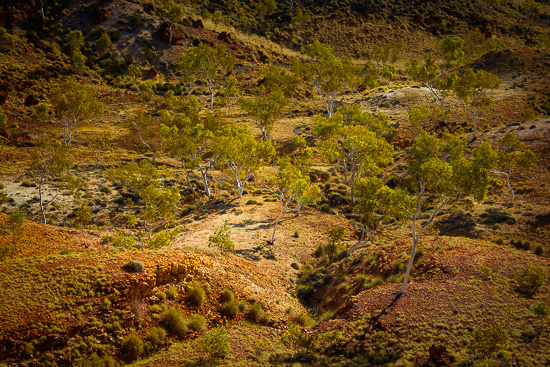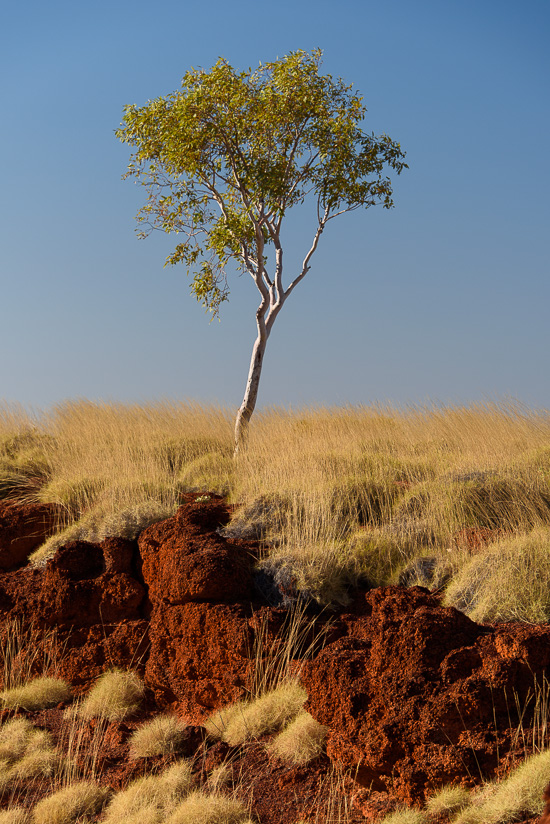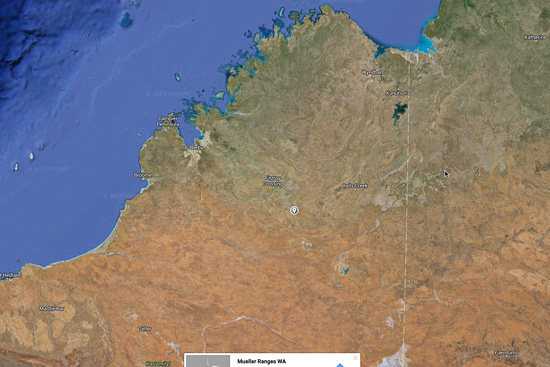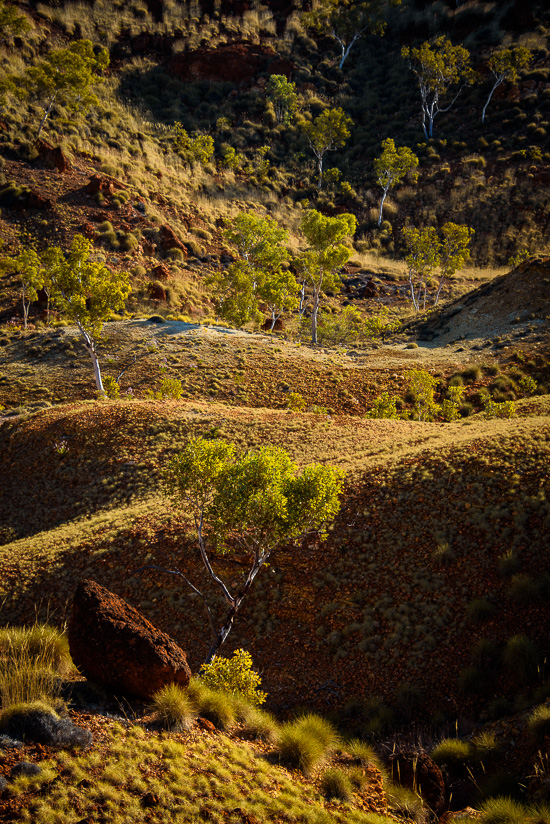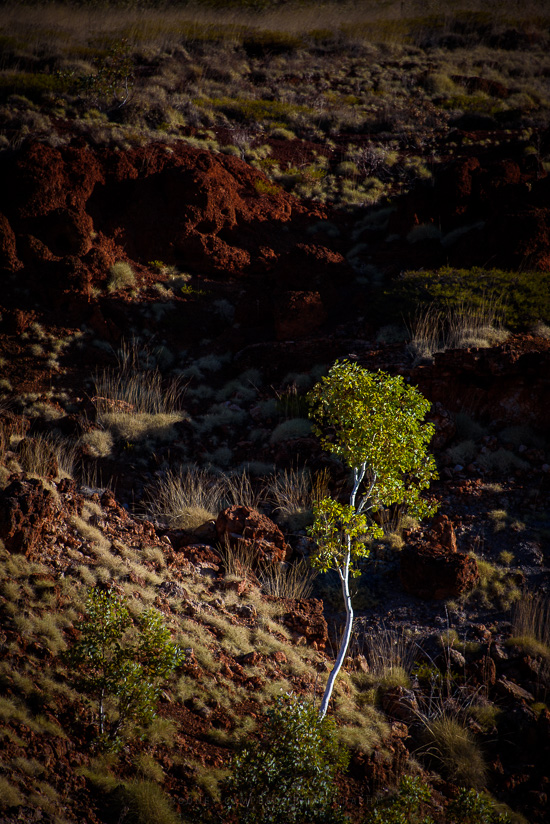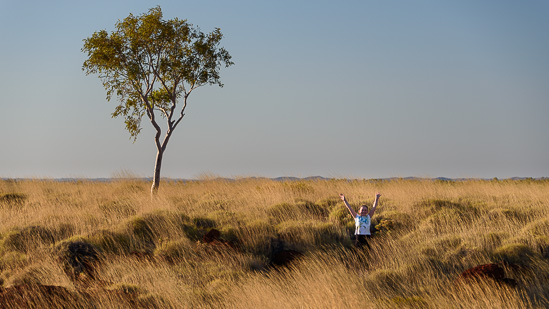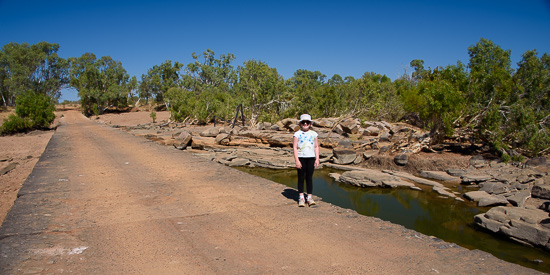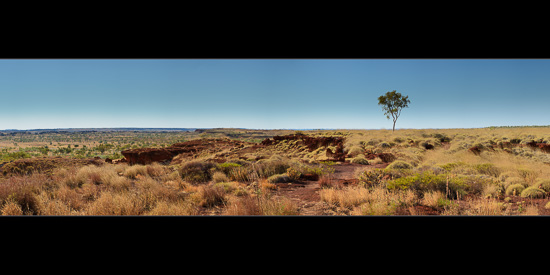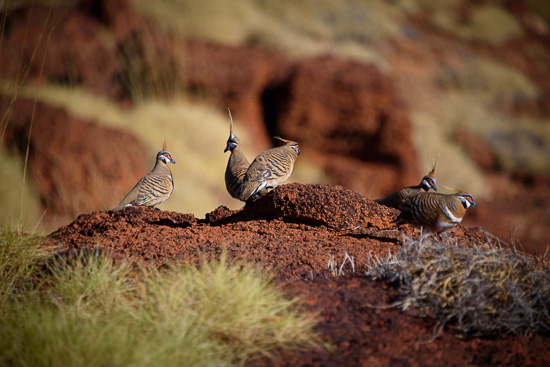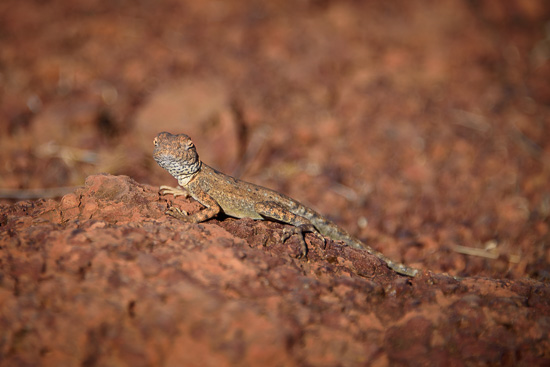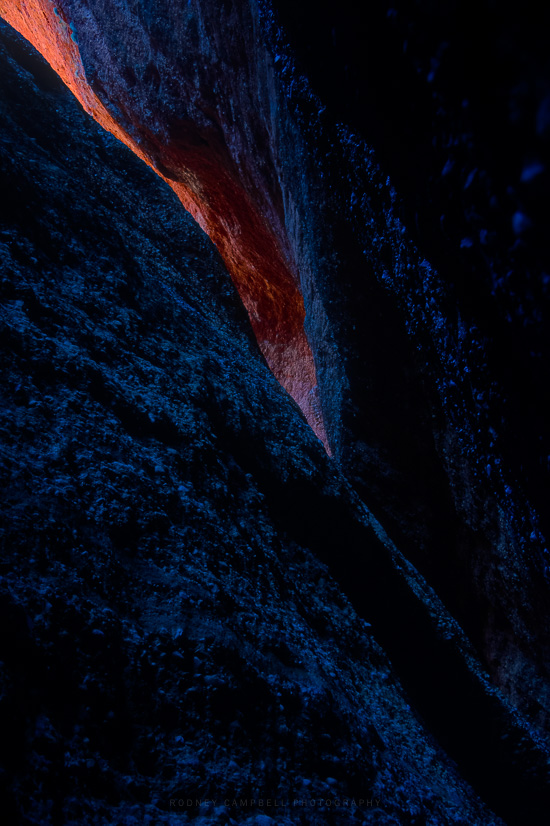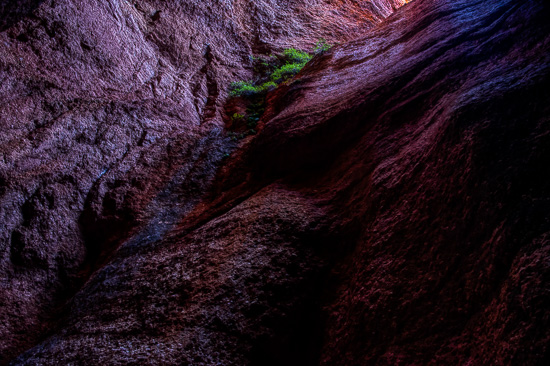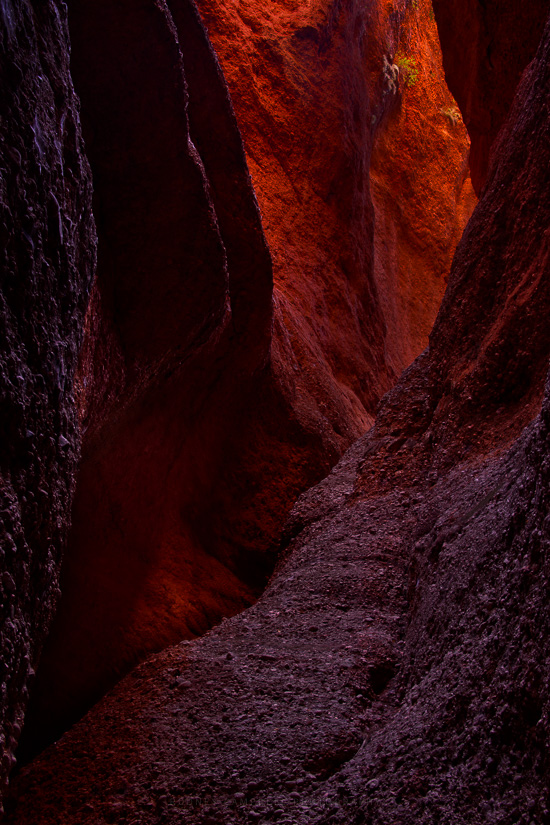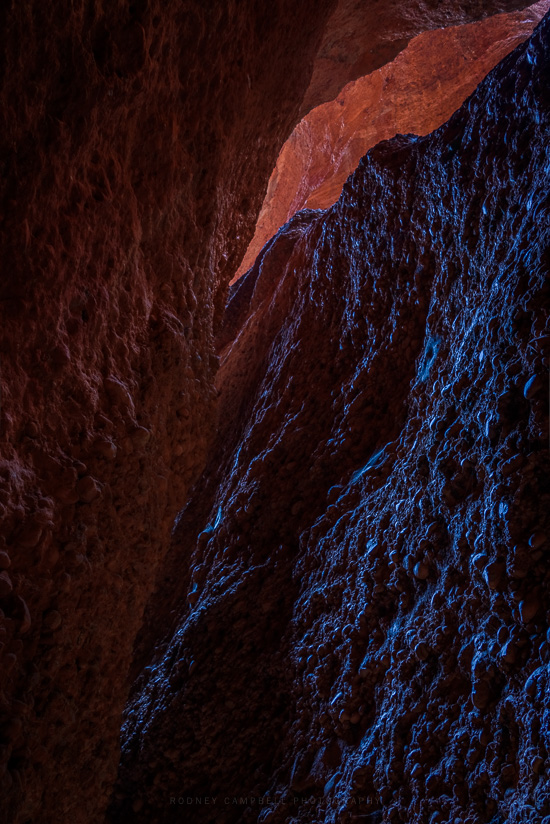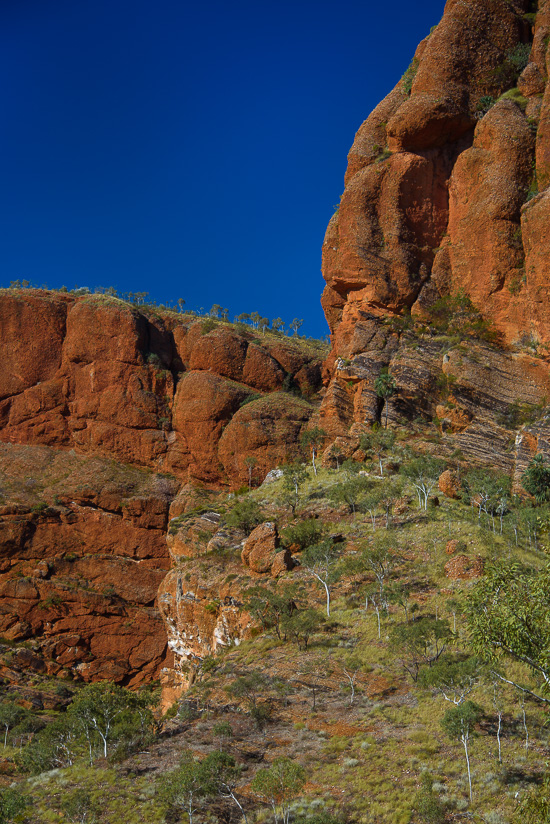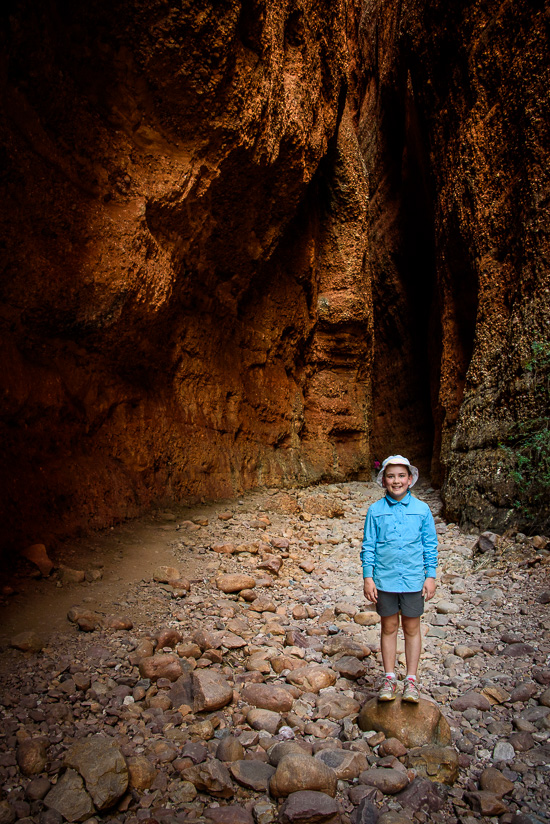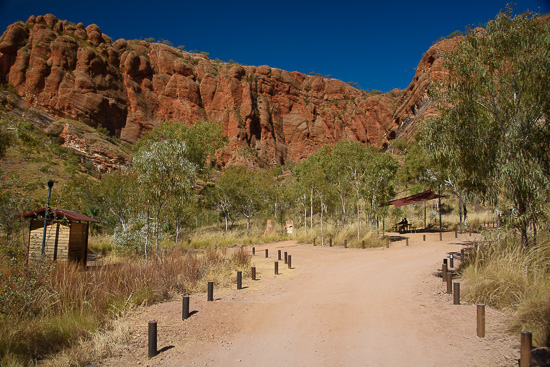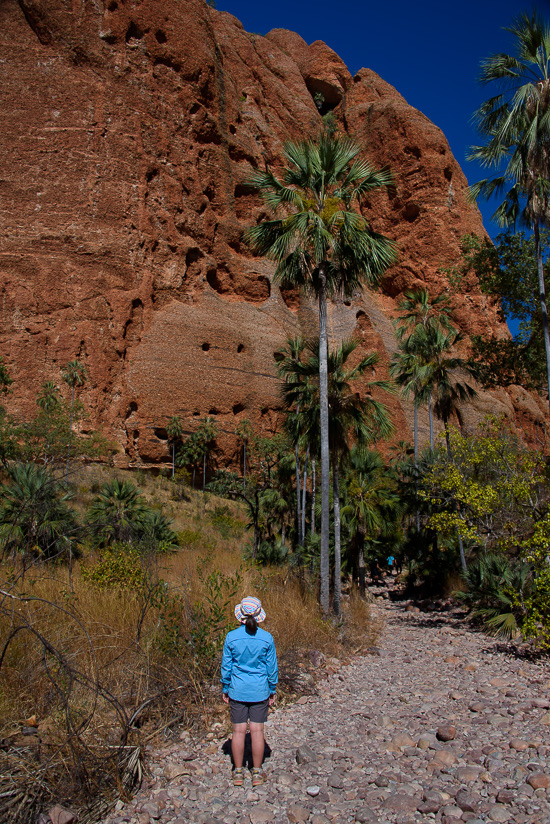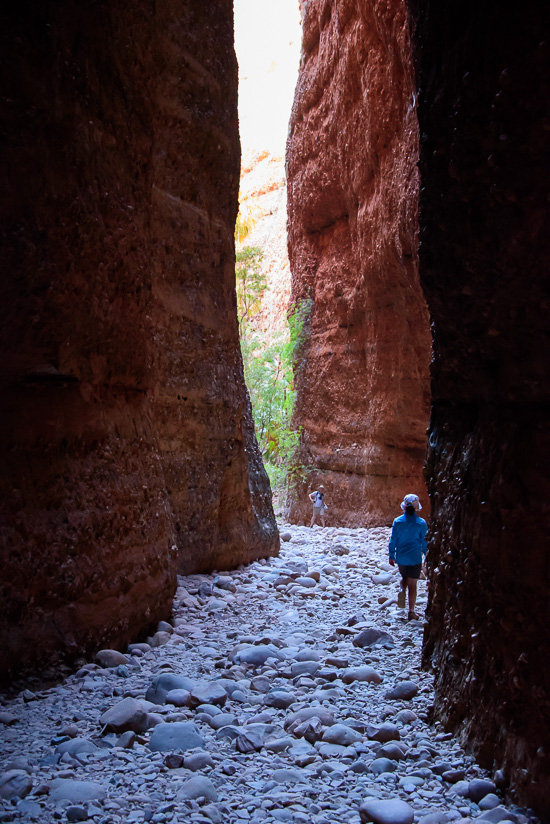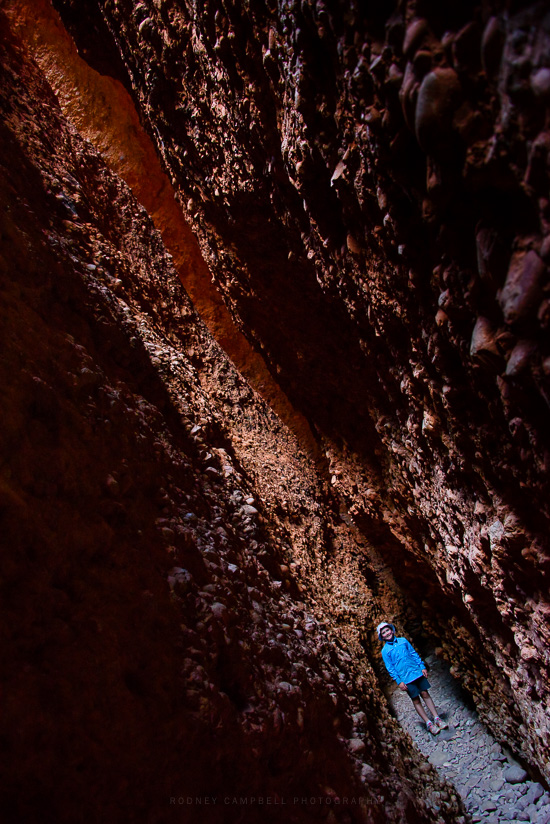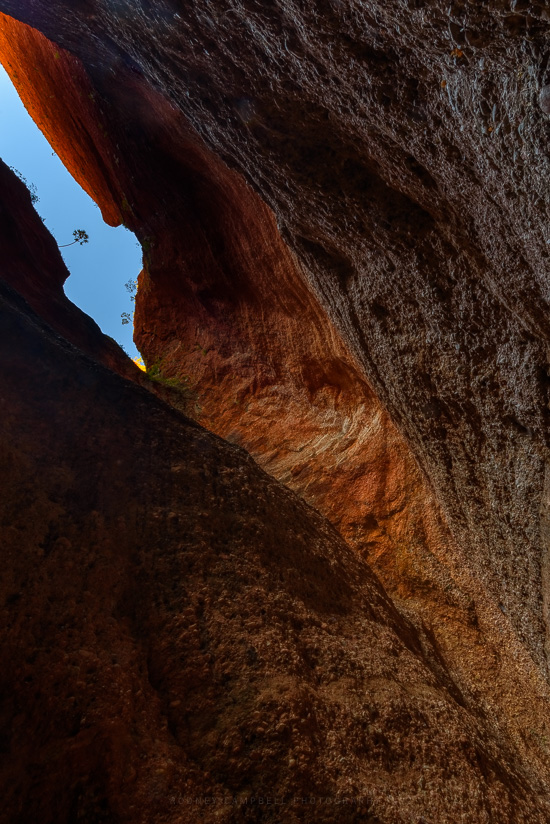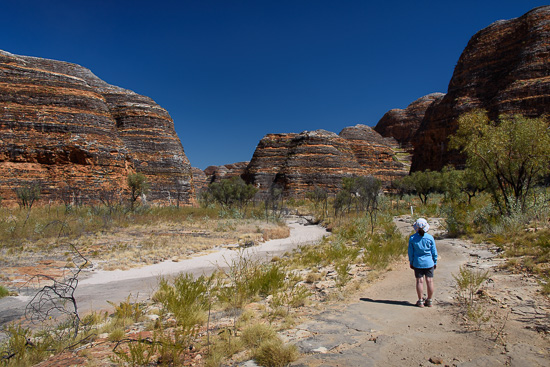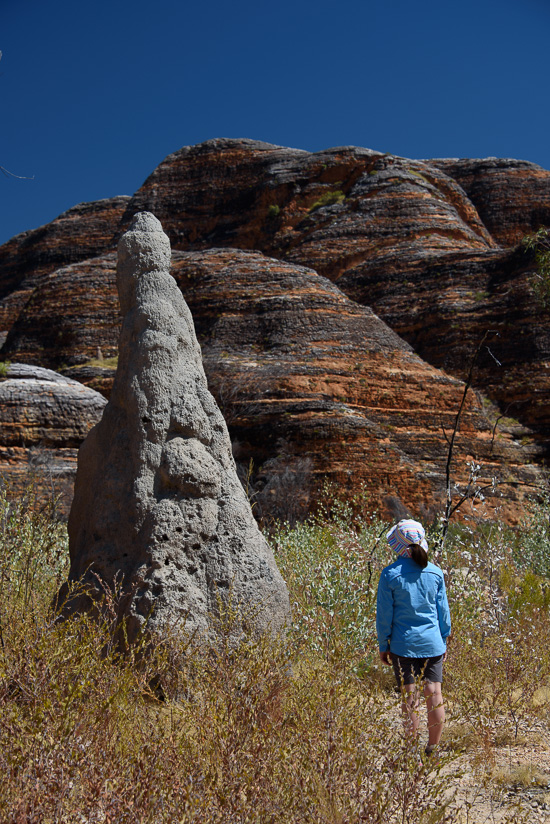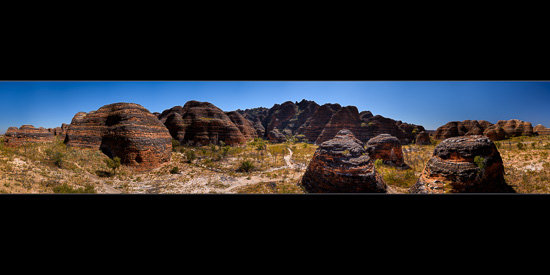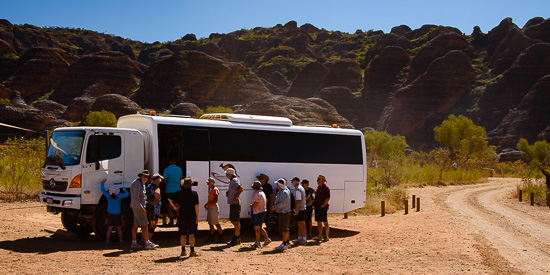Archive for October, 2015
Ngumban Cliff Lookout…
by Rodney Campbell on Oct.09, 2015, under Life, Photography
I wasn’t quite sure if this place was called Ngumban or Ngumpan Cliff Lookout (note the “b” and “p” in Ngumban). Our caravaners guidebook had it listed as Ngumpan Cliff Lookout however I had trouble finding that in Google Maps and when we arrived the signpost at the road corner had it listed with a “b” (Ngumban).
Outback Colours
Note: These images (especially the wider shots) look much better when larger – so click any of the images below to see larger versions in an inline overlay slideshow gallery viewer.
Google searches online show many results for both forms of the name so I’m not sure which is actually correct. I’m just going to go with the possibly dodgy street sign on location :).
Either way you will find Ngumban Cliff Lookout rest area, 96km east of Fitzroy Crossing or 192km west of Halls Creek. The view is worth the stay even if it is quite windy up here at the edge :).
The earth here is soooo red – it’s so dark and rich. We know we are working our way towards iron ore country and the Pilbara.
Ngumban Tree
That lone tree again – plans are still percolating in my mind :). Gerry would have gone nuts over this tree had he been here – sorry dude! :).
We were literally in the middle of nowhere (see centre of the map) and my mental expectation before coming here was that this was going to be more like a desert. How wrong I was with this rich and almost lush countryside.
It’s the riot of earthy colours which just jumps out at you here. The deep reds of the rocks, the oranges of the soil and yellows of the dried grasses. The various light shades of green of the spinifex grasses. Finally the greens of the leaves on the snow gums with their pure white bark on their twisted frames.
Everywhere the colours were bold and inviting, even without the soft beautiful light of sunset or sunrise. In the few hours I spent checking out this location this late afternoon light slowly arched downwards. It’s long rays with selective highlights and shadows forming over the undulations of the valley below were spectacular.
Folds
Out of the Shadows
I too say Yes! to Ngumban Cliff Lookout – I give it my definite thumbs up for a free campsite.
Yes
Lookout…
by Rodney Campbell on Oct.08, 2015, under Life, Photography
Leaving Spring Creek we headed south through Halls Creek and the started heading West.
We were planning to stay the night at Mary Pool Rest Area however it was quite full when we arrived. The place looked quite nice and the large ford across the river to get there was interesting.
Mary Pool Ford
We decided to continue on to the next rest area which in a stroke of very good fortune was Ngumban Cliff Lookout.
Note: These photographs (especially the wider shots) look much better when larger – so click any of the images below to see larger versions in an inline overlay slideshow gallery viewer.
We literally backed the caravan right up to the edge of the small cliff and our view was fantastic.
This is a panoramic view (fourteen (14) vertical frames) looking from near the caravan across to the lookout beside us.
Viewing the Lookout
The photographic opportunities right here at the doorstep at this lookout were spectacular. Besides the wondrous location, this lone tree on the edge of the lookout in particular was a huge drawcard. I had lots of plans for this tree over the coming evening and next morning before we left :). I spent two good hours wandering around the area checking out the location and the wildlife, taking photos before dinner.
Bush Pidgeons
This little lizard nicely camouflaged against the rich red rocks.
Camo
Colours of Purnululu…
by Rodney Campbell on Oct.06, 2015, under Life, Photography
One spectacular aspect of the walk into Echidna Chasm at the northern end of Purnululu National Park is the amazing array of natural colour on the high gorge walls beside you.
Lava Cutting
As you walk along you will see the walls above you glow in striking colour variations. Warm tones of yellow through to orange and red blaze above you as the sun angles in and reflects off the higher walls up top. Down below in the more shadowed areas the hues tend more towards the purples and blues. These subtle colour variations and the warm cool colour contrasts are quite amazing.
Note: These photographs (especially the wider shots) look much better when larger – so click any of the images below to see larger versions in an inline overlay slideshow gallery viewer.
Emerald Lifeblood
It’s actually very difficult to shoot in these conditions. Down at the ground level where you walk it’s almost darkness which means your camera wants to shoot at very high ISO’s to compensate. However anywhere where the light comes in from above, or if you get to see and want to include the sky itself – it’s obviously super bright. This incredibly large dynamic range makes it essentially impossible to capture everything in one clean shot even with such amazing technology and dynamic range as Nikon’s latest range of full frame sensors.
The only way around this is to bracket exposures and blend the good parts of frames in post processing. So I tended to shoot either 5 or 7 exposure brackets (at 1EV intervals) but sometimes even 9 frame brackets. Thankfully my new Nikon D750 allows me to do this completely automatically in one go. I now don’t have to use the painful weird exposure compensation tricks to shift the maximum of 3 bracketed shots around like I used to have to do on the D600 and earlier cameras to get the same overall cover – yay!!!.
On the way into the chasm I was shooting completely handheld. Basically because I really didn’t know how much time we’d have or what we’d see. This resulted in two things with my shots (above):
– they tended to be a quite high ISO’s – anywhere from the low 100’s up to 12,800 for various frames – luckily the D750 does very well with high ISO noise.
– I had to be very careful with my handholding technique when shooting brackets of 5 or even 7 images so they would align properly in post processing.
Once we reached the end of the chasm, I brought out the tripod and started taking my time shooting “properly” :).
Flames
This is I expect reminiscent of what I believe the amazing Antelope Slot Canyons in Arizona look like. Though in this case we don’t get that lovely striped sandstone nor the array of shifting sand and fabulously sinuous wind worn curved walls. Here in Purnululu it’s a sedimentary conglomerate base for a much more angular, firmer and nodular feel but still with the fabulous colour palette.
The Glow
Looking from the outside it’s easy to see where the warm coloured glow on the walls comes from :).
Purnululu
Echidna Chasm…
by Rodney Campbell on Oct.05, 2015, under Life, Photography
At the northern end of Purnululu is Echidna Chasm (a 1 hr, 2 km return walk). The walk begins at the Echidna Chasm car park, 19 km north of the visitor centre.
Tracking the Echidna
Note: These photographs (especially the wider shots) look much better when larger – so click any of the images below to see larger versions in an inline overlay slideshow gallery viewer.
Echidna Carpark
Initially you walk along a pebbled (some quite large pebbles mind you :)) creek bed through a palm filled gorge (Livistonia palms). Soon you start heading into a gorge with high rock walls on both sides and becomes narrower and narrower. A joint in the sandstone and conglomerate rock has been widened by water erosion thus enabling human entry.
Livistonia
There are some boulders you need to climb and scramble over along the way, or duck under some that are stuck above you (praying for no slippage :)). The gorge is a spectacular long, narrow chasm. Note there is a steel ladder to access the innermost section. The amazing conglomerate boulders strewn along the path provide a clue to the sedimentary origin of the Bungle Bungle Range.
Echidna Chasm
In the end you find yourself in a gap that’s less than a metre wide, with walls up to 200m high, so it’s nearly completely black at the bottom. The only way to try and show the scale of the chasm is probably to try and include people in the shot :).
The Narrows
Up into Space
The Domes…
by Rodney Campbell on Oct.03, 2015, under Life, Photography
On our way back out from Cathedral Gorge we visited and area called “The Domes”. The Domes walk is connected to the Cathedral Gorge Walk. It’s simply a detour via a couple of side tracks. It’s only a very short walk so it’s worthwhile to see more of the sandstone beehives and creek beds out here in the Bungles.
Standing in Awe
Note: These images (especially the wider shots) look much better when larger – so click any of the images below to see larger versions in an inline overlay slideshow gallery viewer.
Even out here these crazy amazing anthills or termite mounds are a pretty amazing sight.
Anthills
As we were leaving The Domes walk there were some nice lowish rock domes that looked quite climbable. I “accidentally” found myself at the top of one of these :). Great view from the top of the domes so I could take this panorama of the area from up high.
I originally took 23 vertical frames handheld for a significantly more than 360˚ cover of the view. In the end I used less than all the frames for my final panorama – I preferred the slightly tighter cropped view. This still represents about a 270˚ view so what you see here is a very wide curved panorama encompassing the whole of the domes area. It also gives you a great sense of what these amazing sandstone beehives look like.
Pro Tip: One thing to note here is that I was simply too hot, tired and lazy to bother removing the circular polariser like I should have before taking the frames for this shot. With a panorama covering an area this wide I was bound to end up having extremely uneven polarisation across the sky. Even with the sun very high in the sky at midday this was still going to be a problem. In the end I got lucky with the darkened areas towards the far left and right of the crop I actually liked and the lighter highlight almost backlighting the darker beehive structures across the middle. I’d suggest don’t rely on luck tho – do it properly and remove the polariser before shooting :).
The Domes
After we’d made it back to the carpark and had a well earned lunch and refreshment it was time to head off to our next destination out here in Purnululu (Bungle Bungle) National Park.
